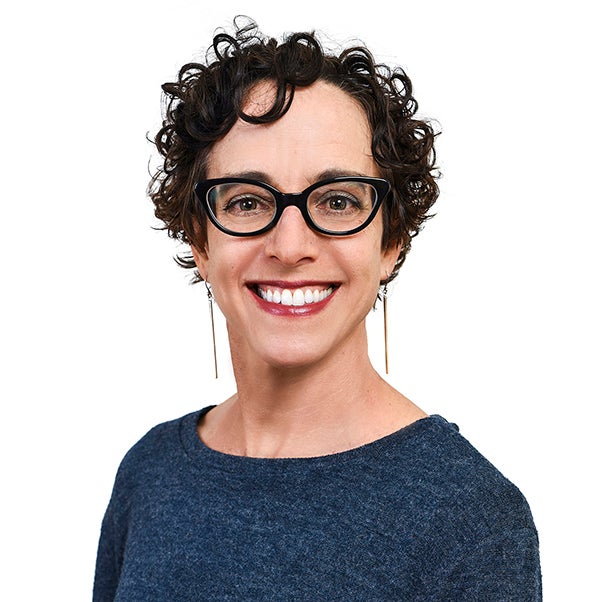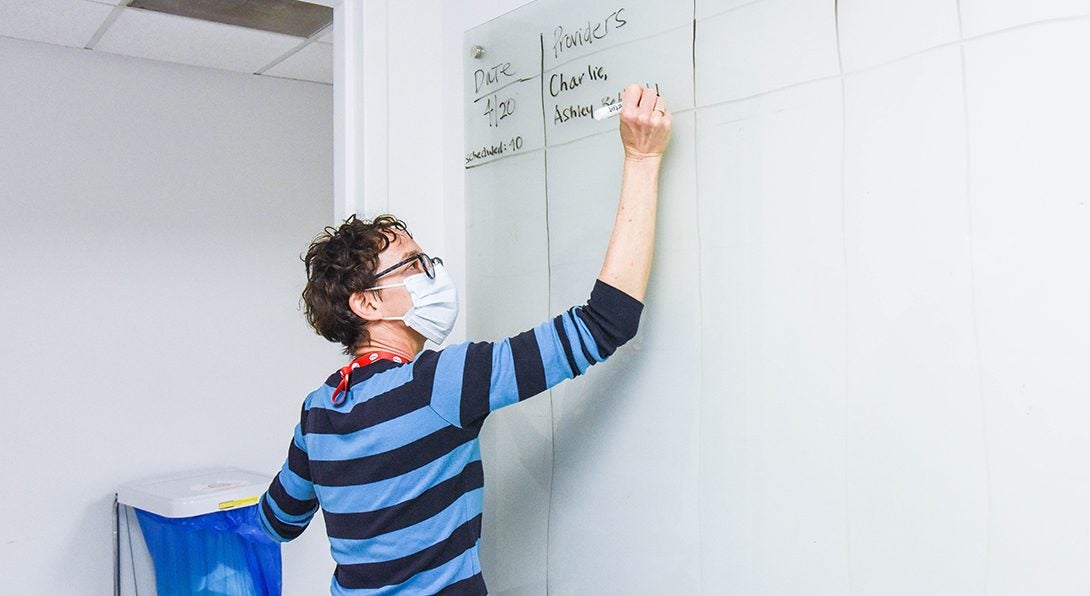Singer is “On Duty”
Rebecca Singer was recently reflecting on her vast experience in war zones, centers of epidemics and sites of natural disasters. She was striving to recall a time and place worse than the current experience of COVID-19 in the U.S. In the end, she said to herself, “Nope. This is the worst.”
body copy Heading link

On Nov. 19, Rebecca Singer delivered this and other notable remarks as she presented, “Humanitarian response to a global pandemic: Applying lessons from abroad here at home.” It was UIC Nursing’s second installment of “On Duty,” a webinar series featuring faculty and alumni experts
Singer, DNP ’18, RN, a clinical assistant professor, has delivered humanitarian healthcare on six continents, primarily with Doctors Without Borders. Her work occurs in areas devastated by natural disasters or by war and other human-made crises. She says she lives by the motto, “Where we live should not determine if we live.”
In her “On Duty” webinar, she told attendees that, while she loves this work, “If I could work myself out of a job, that would be my dream come true.”
After illuminating some of her past work, particularly in South Sudan, Singer noted, “I always would joke that my skills, in the United States, were kind of useless. … Then suddenly, in March of this year, I became very relevant, which was nice, but not for the best reasons.”
Indeed, Singer was a key leader in the college’s response to the COVID-19 outbreak in Chicago. First, she set up the UIC/UI Health employee testing center, which was instrumental in keeping the university healthcare system functioning during the first surge.
Now she is co-leading an effort with the UIC College of Medicine and colleagues at Rush University Medical Center to perform COVID-19 testing in homeless shelters, correctional facilities, behavioral health facilities, long-term care facilities and other locations, all under a contract with the Chicago Department of Public Health. In this role, she said, she is doing what she mastered through Doctors Without Borders: Gathering a team, loading up every day, going out to the community, setting up, doing the work, breaking it down, coming home, and doing it all again the next day.
VIDEO: Watch the recorded presentation
Drawing parallels Heading link

Singer outlined for attendees what she sees as three comparable challenges between the situations she has helped to address overseas and the crisis we’re facing now in the U.S.: the knowledge that her work provides only limited impact; the pervasive feeling of loss we all share; and the fact that the personal and professional are inseparable in this crisis.
“I don’t think as healthcare workers, we have ever worked this hard and failed this badly,” she said, providing clear context that the failure is in systems, not the actions of individual providers.
She ended her remarks, though, on a hopeful note: “I’ve worked in places like Liberia, which got decimated by a civil war—brutal like you can’t believe, everything, all parts of normal life destroyed—and yet I worked with amazing people who were rebuilding. They were coming to work every day, laughing, telling stories, listening to music, dancing and caring beautifully for patients. That gives me hope that, even in those depths, seeing the worst, we can do it. We can keep going.”
The next installment of On Duty is scheduled for Jan. 19, when associate dean for equity and inclusion Phoenix Matthews, PhD, will present, “Developing the pipeline to increase diversity, equity and inclusion in nursing.”